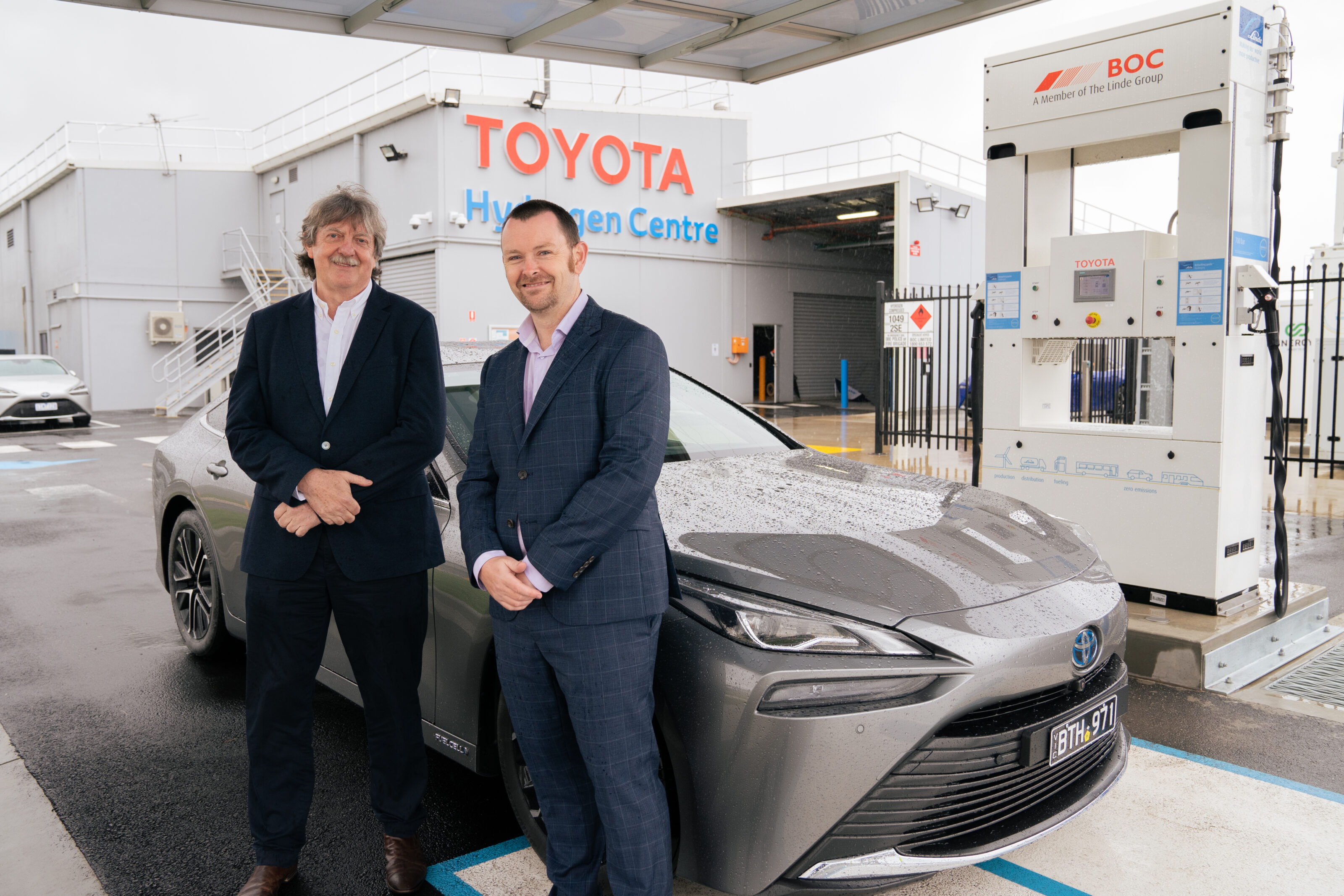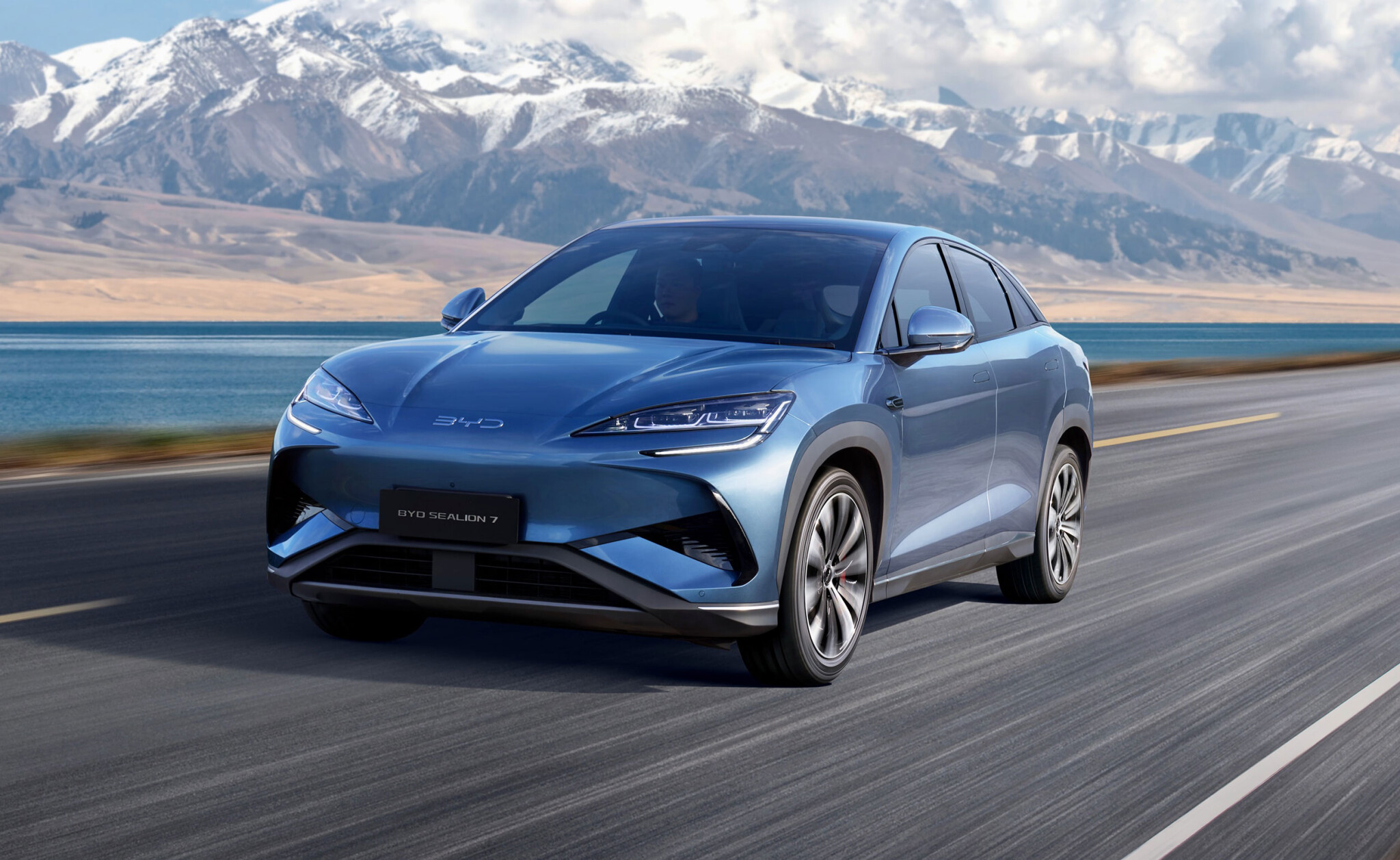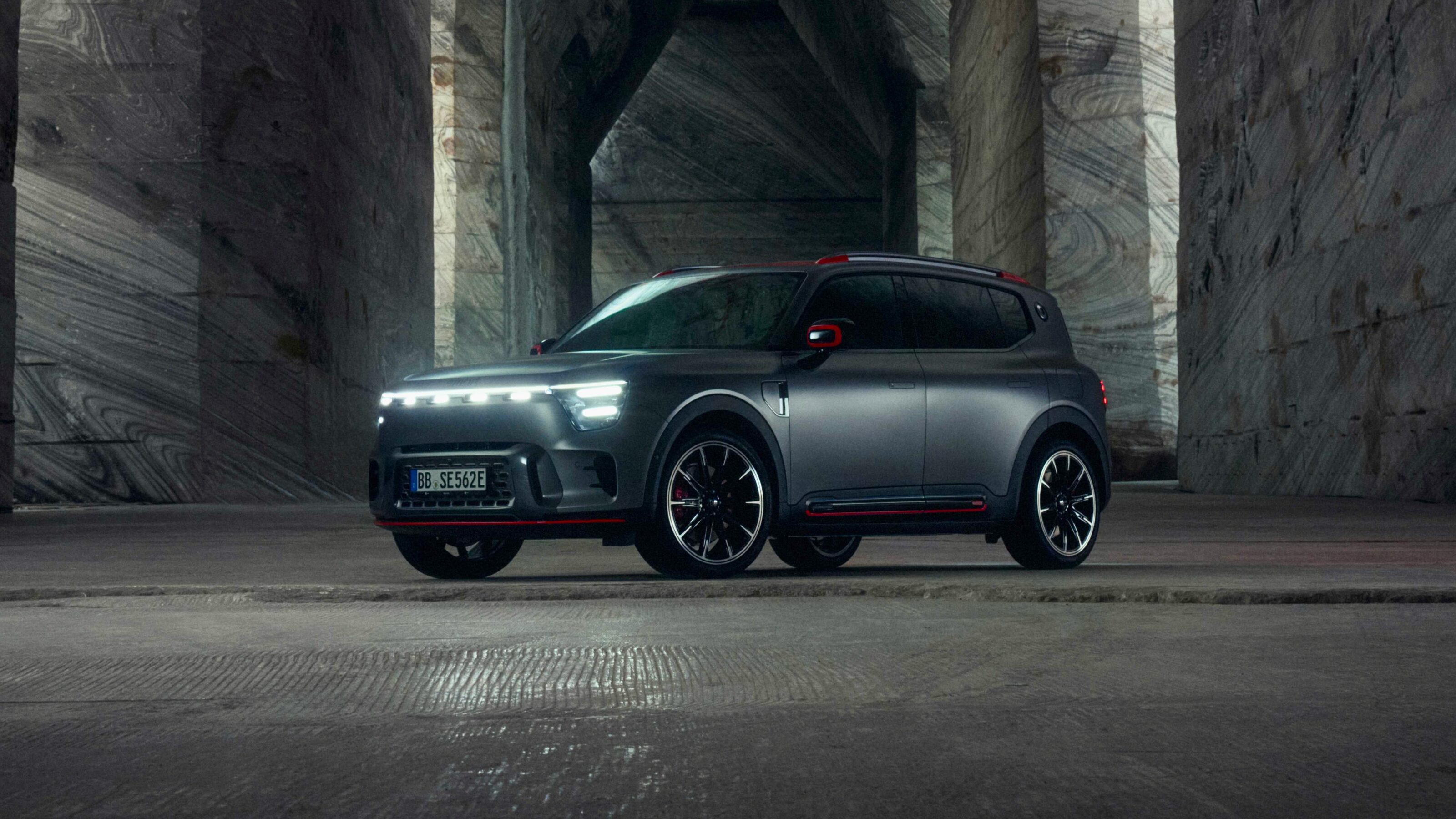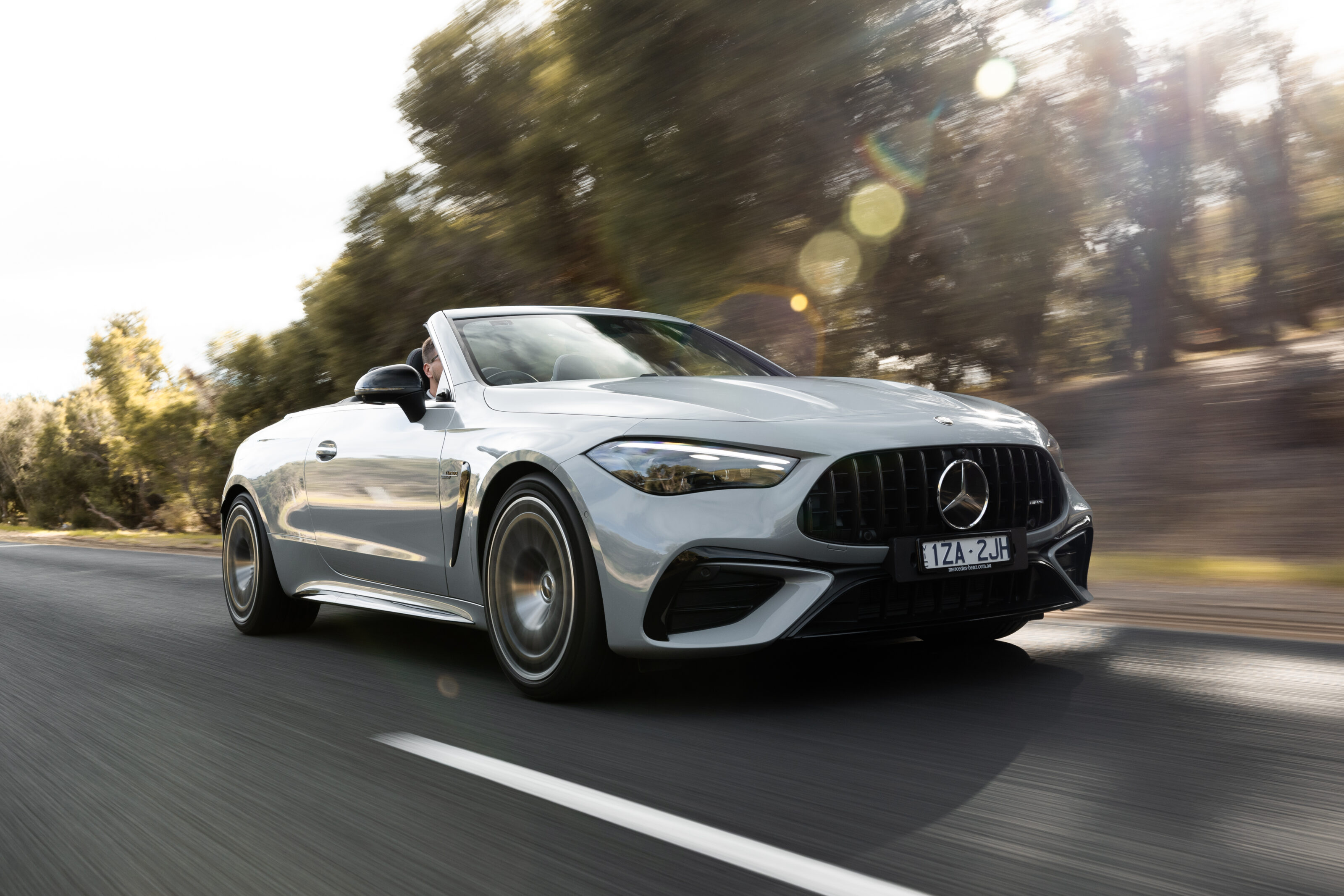Toyota’s hydrogen fuel-cell Mirai sedan is starting to gain momentum within the business community, with fleets snapping up the zero-emissions vehicle.
The hydrogen fuel-cell electric vehicle (FCEV) is currently the only zero-emissions Toyota available for sale in Australia, debuting locally last year – despite the first-generation model previously being made available for sale in Europe.
Just a few months after it first appeared on the Australian market, Toyota says the FCEV has recently been adopted by a number of businesses looking to reduce their fleet emissions, as well as government officials pushing for change within the industry.
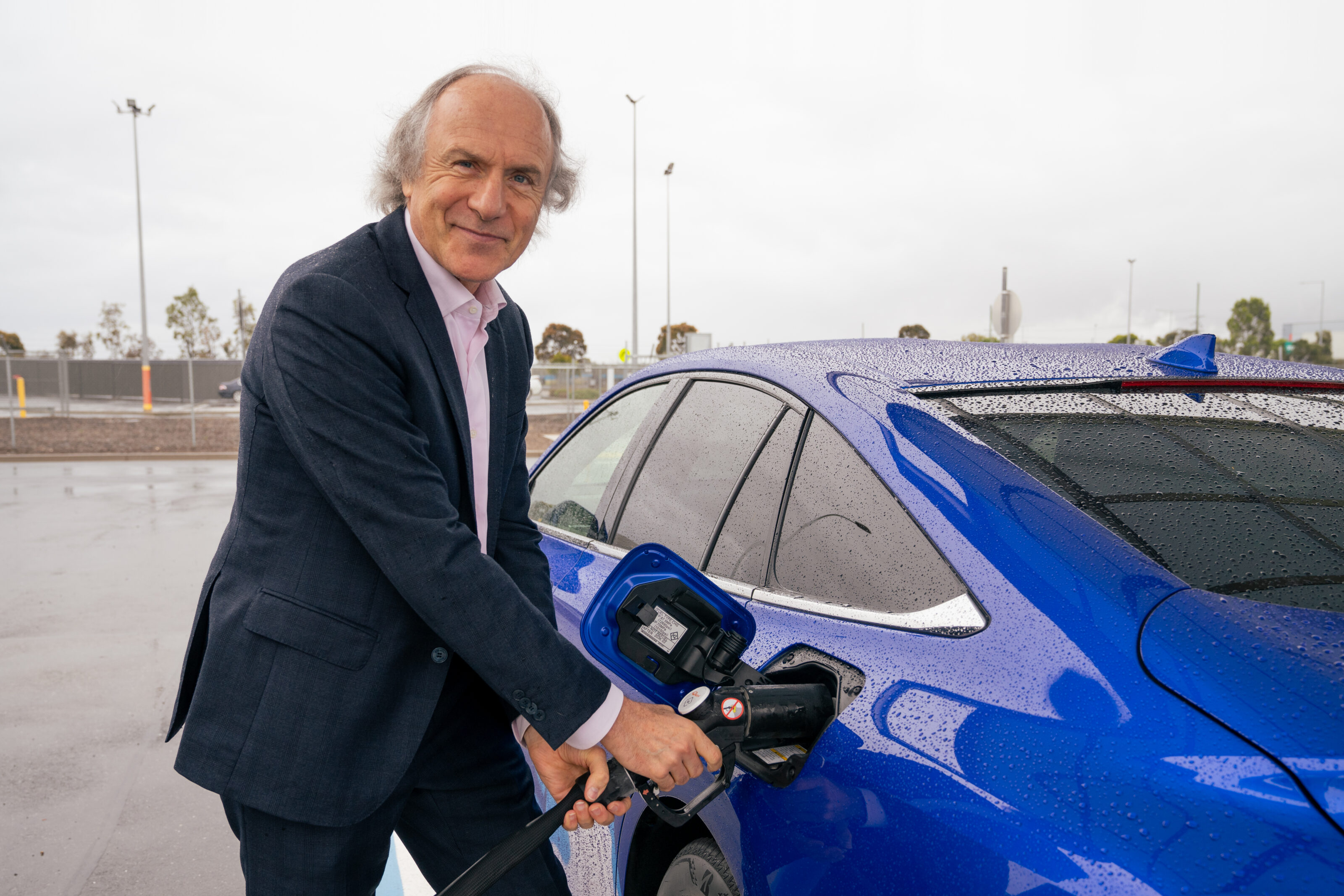
Dr Alan Finkel, Special Adviser to the Australian Government on Low Emissions Technology, said hydrogen fuel-cell technology will be crucial to the future of local transport, especially in the heavy vehicle sector.
“Hydrogen will be a big part of our future,” said Dr Finkel.
“Most of the replacement of oil, coal and gas will be electricity delivered as electrons, but about 15 per cent of the end-user requirements will be delivered as hydrogen.“Big trucks are the most obvious opportunity. It’s a bit like diesel and petrol – you associate diesel with big trucks, buses, trains, and ships, and petrol with small urban delivery trucks and cars.
Battery electric vehicles (BEVs) and hydrogen fuel-cell electric vehicles (FCEVs) tend to split that way, but there is overlap. Where hydrogen will really excel for cars is for people who don’t have off-street parking.“It’s fantastic to be able to take the Mirai and fill up in about five minutes. So for those people who live in older houses in inner city Melbourne or Sydney, or live in apartments that don’t have provision for car parking, then a hydrogen car is wonderful.
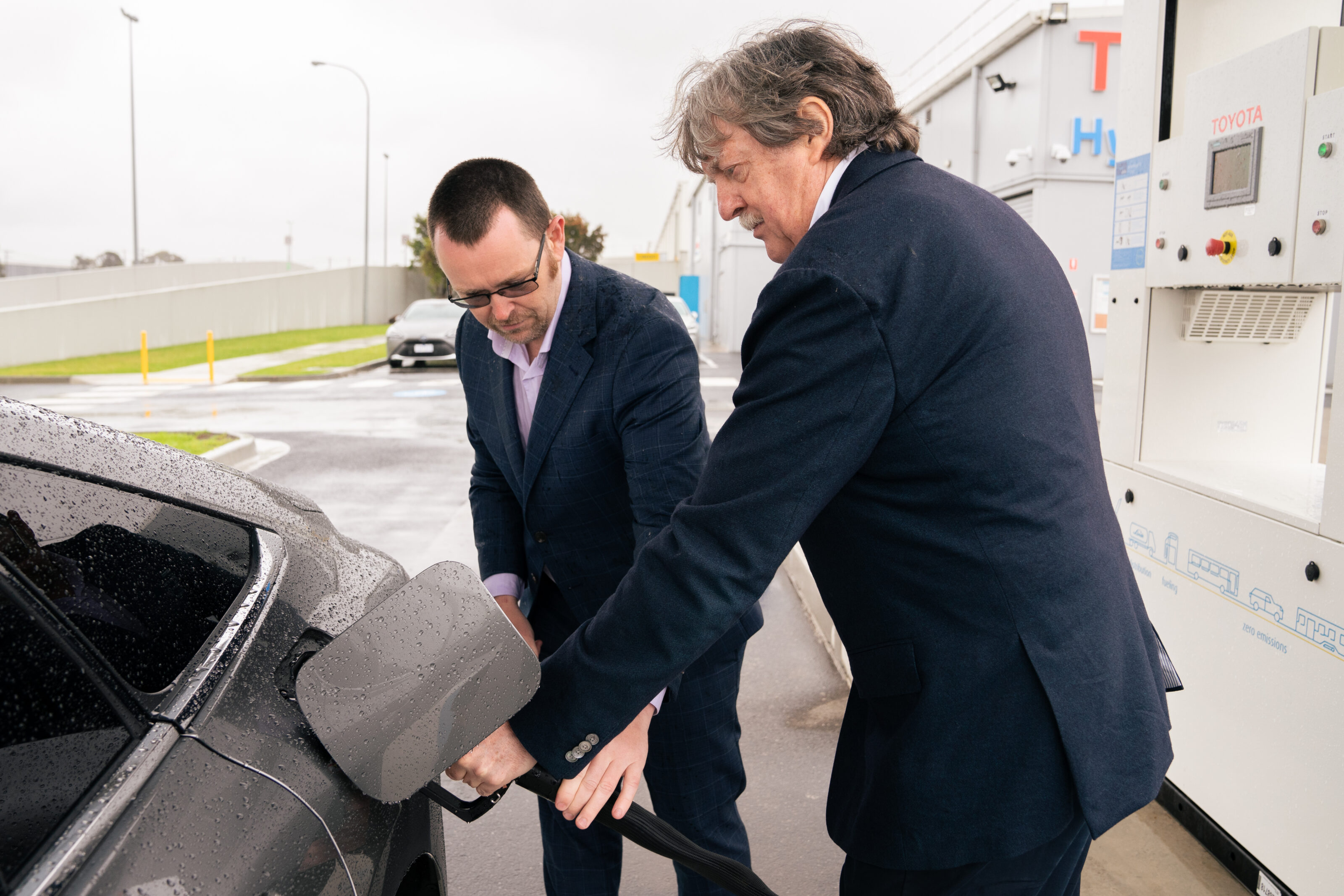
Iain Graham, CEO of Red Energy (a subsidiary of Snowy Hydro) believes hydrogen vehicles such as the Mirai will provide the crucial next step away from internal combustion engines and towards a zero-emissions future.
“It was important for us to understand what is the future,” said Graham.“We’ve always looked to how we are going to be competitive and what’s on the horizon. When electric vehicles came along, we were one of the first to get one which has been a tremendous education for us and a wonderful tool to talk about renewable energy and how practical it is.“When we saw that Australia was starting to look at hydrogen and Toyota was involved, we wanted to understand this. Hydrogen is probably a distance away before it’s commercially practical, but we wanted to be at the very front in our understanding.”
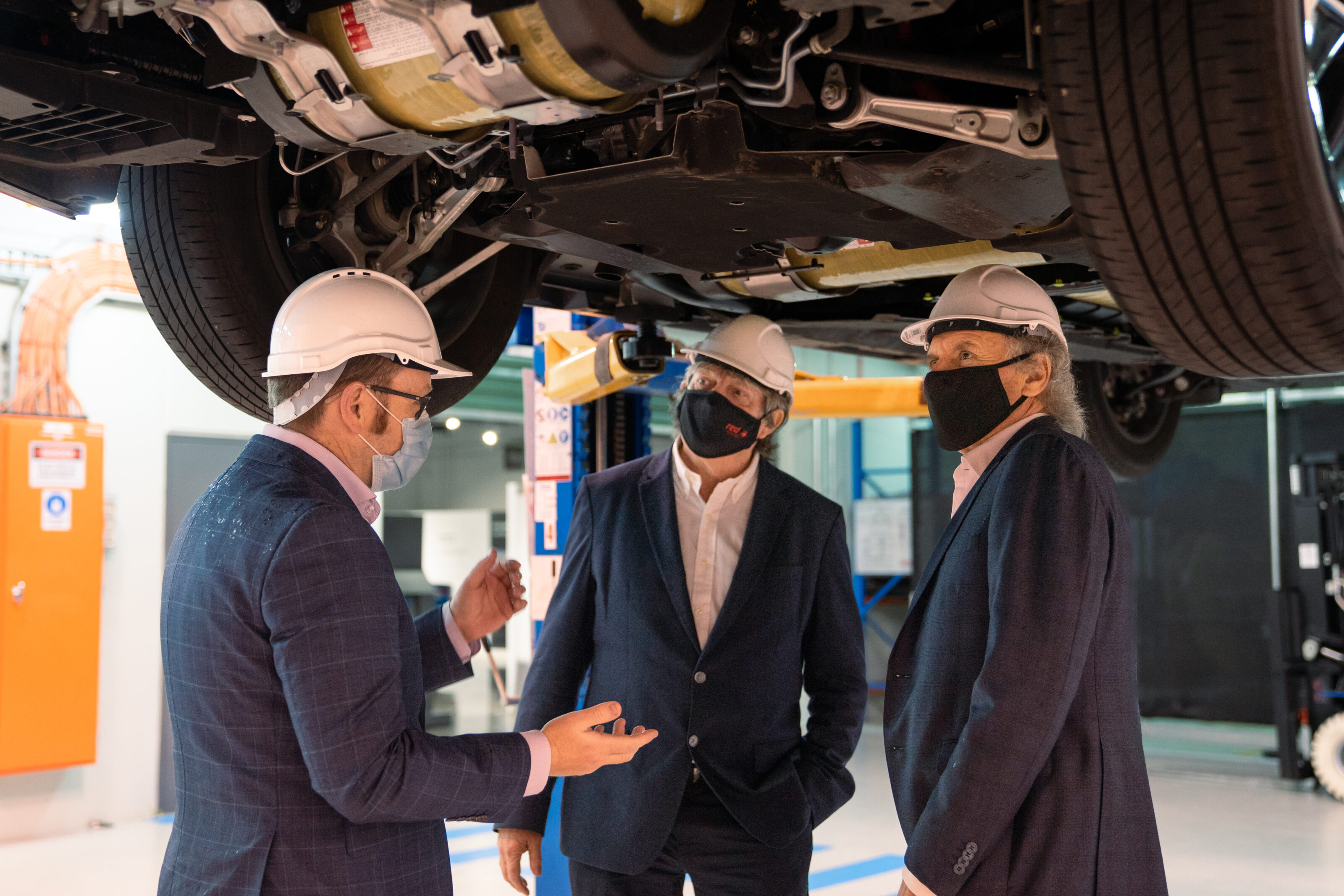
Other adopters of the Mirai include the Australian arm of Hyzon Motors – which has just established a local headquarters for its hydrogen tow trucks – Telstra, ACCIONA and the Yarra City Council.
Launched in Australia last year, the FCEV is offered by Toyota to buyers as a part of a three-year lease period, inclusive of refuelling and servicing.
Currently the only filling station for Victorians is at the Toyota Hydrogen Centre in Altona, with a 200kW electrolyser on site producing and storing hydrogen for the Mirai – which features a driving range of up to 650 kilometres.
As well as the Mirai, Hyundai has also recently brought a dedicated hydrogen vehicle to market in the Nexo, with the Korean alternative joining the Australian Capital Territory and Queensland Government fleets.
We recommend
-
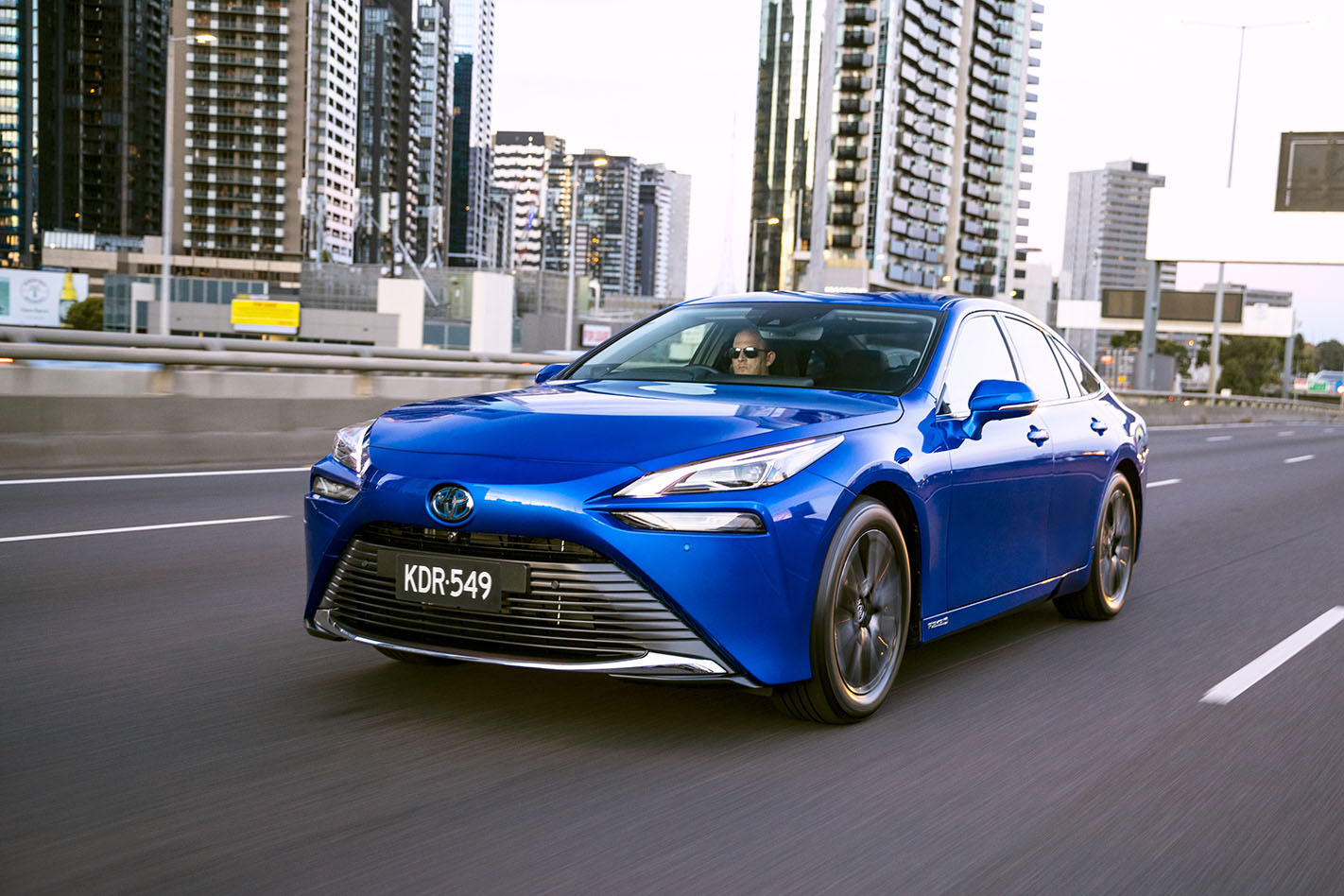 News
News2021 Toyota Mirai can be yours for $1750 per month
Toyota has launched its second-generation hydrogen fuel-cell vehicle in Australia
-
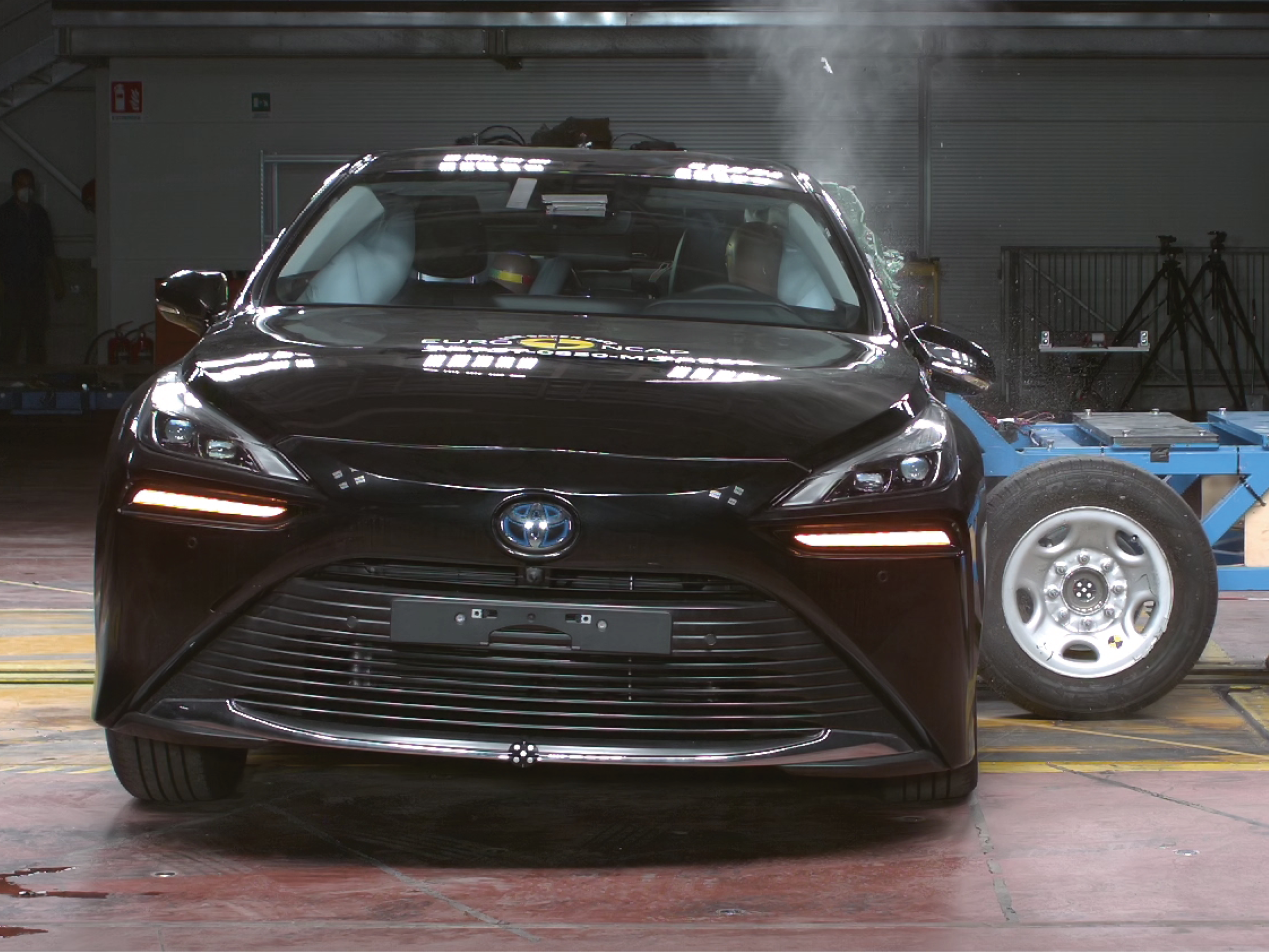 News
NewsHydrogen-powered 2021 Toyota Mirai scores five-star ANCAP safety rating
Toyota’s hydrogen hero car secures top safety rating
-
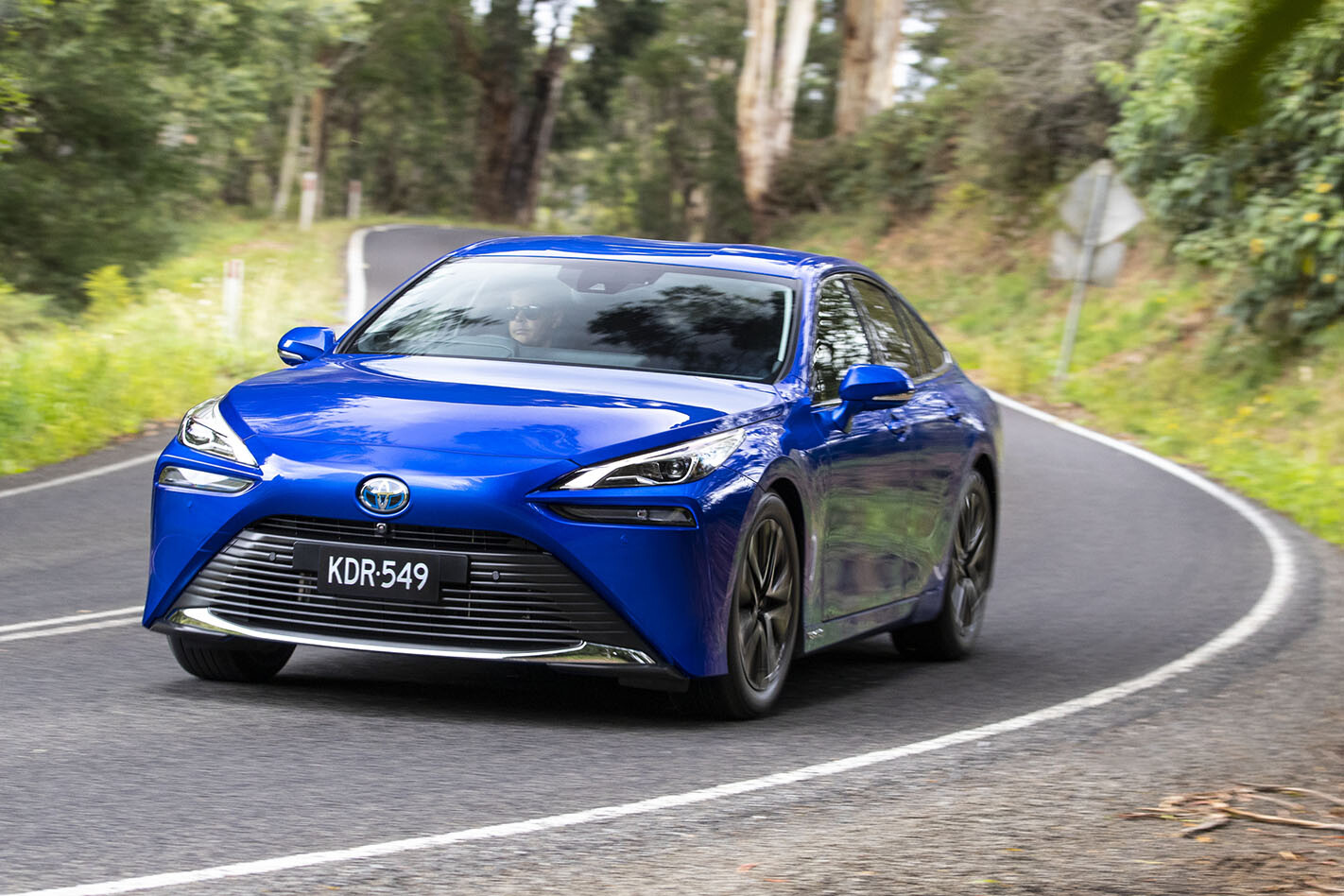 Reviews
Reviews2021 Toyota Mirai review
The second-gen Mirai's hydrogen fuel-cell powertrain is its headline act, but what is it actually like to drive?


